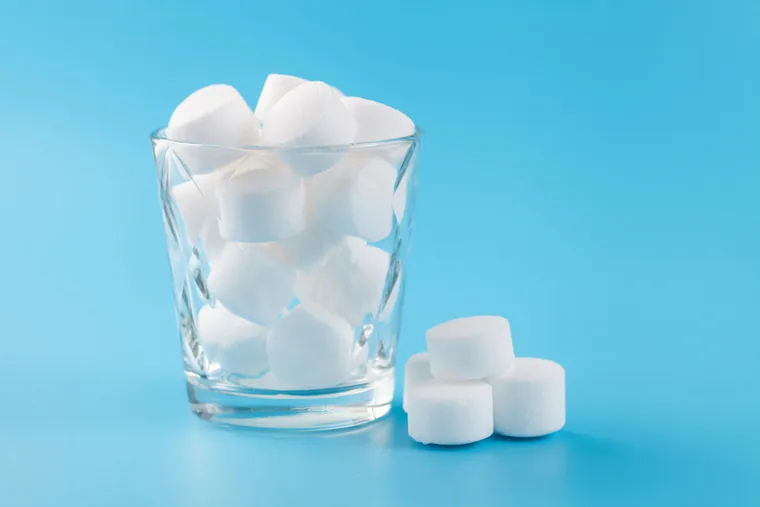Hard water is a common issue in many households, causing problems like scale buildup, clogged pipes, and increased wear on appliances. These issues can lead to higher energy bills and more frequent repairs.
A water softener is an effective solution that improves water quality while extending the lifespan of your plumbing and appliances. By addressing hard water problems, water softeners can save you money and improve the efficiency of your home.
What Is a Water Softener?
A water softener is a device designed to remove or neutralize hard minerals, such as calcium and magnesium, from your water. These minerals are responsible for limescale buildup on fixtures, reduced efficiency in water-based appliances, and the dry feeling on your skin and hair after showering.

By removing the minerals, a water softener makes your water "softer" and easier on your home and body.
Considering how water softeners can protect your home’s plumbing and appliances, they’re a worthwhile investment for homeowners and real estate professionals looking to maintain property value—something that’s often discussed in Real Estate Continuing Education courses focused on energy-efficient upgrades.
How Do Water Softeners Work?
The process behind water softeners primarily involves ion exchange and regeneration. During ion exchange, water passes through a tank filled with resin beads saturated with sodium or potassium ions. Hard minerals in the water are attracted to these beads and replaced with sodium or potassium ions, leaving the water free of hard minerals.
Over time, the resin beads become saturated with calcium and magnesium and must be regenerated. This involves flushing the beads with a brine solution to restore their effectiveness so that the system continues to provide soft water.
Types of Water Softeners
There are various types of water softeners to suit different household needs. Salt-based water softeners are the most common and effective, using ion exchange to remove hard minerals. They require regular salt replenishment and periodic maintenance. Salt-free water conditioners, on the other hand, do not remove hard minerals but neutralize them to prevent scaling, making them a low-maintenance alternative for homes with moderate water hardness.
Dual-tank water softeners are ideal for large households with high water usage, as they supply continuous soft water by alternating between two resin tanks during regeneration cycles. Portable water softeners are compact units designed for RVs, boats, or small homes. They use salt-based technology but require frequent recharging.
Electromagnetic and magnetic systems use electromagnetic fields to alter the properties of hard minerals, preventing them from sticking to surfaces, but these are less effective for very hard water. Polyphosphate systems, often used in commercial settings, add polyphosphates to water to keep hard minerals soluble and prevent scale buildup in appliances.
Benefits of Water Softeners
The benefits of water softeners are numerous. Softened water prevents scale buildup in water heaters, dishwashers, and washing machines, improving their efficiency and extending their lifespan.
Softened water also benefits your skin and hair by retaining natural oils, leaving them feeling healthier and less dry. Additionally, softened water prevents mineral deposits on dishes and glassware and enhances the effectiveness of detergents, resulting in cleaner dishes and softer laundry.
Finally, by reducing scale buildup in pipes, water softeners help maintain the health of your plumbing system, preventing costly clogs and corrosion over time.
For real estate professionals, whether you’re taking a Real Estate CE or License Renewal Course, understanding the benefits of energy-efficient home upgrades like water softeners can provide valuable insights for advising clients and maintaining properties.
How to Choose the Right Water Softener
When choosing a water softener, several factors should be considered. First, test your water to determine its hardness level, as higher hardness requires a more robust system. Next, consider the size of your household and daily water usage to select a system with adequate capacity. Space and installation needs also play a role, as salt-based systems require more room, while salt-free and magnetic systems are more compact.
Maintenance requirements should also be factored in, as salt-based systems require regular upkeep, including salt refills and occasional cleaning. Lastly, consider the cost, as salt-based systems are highly effective but may have higher upfront and ongoing costs, while salt-free and magnetic options are often more budget-friendly.
Caring for Your Water Softener
Proper maintenance of your water softener is essential so it continues to perform well. For salt-based systems, check and refill the brine tank every 4–6 weeks and clean the tank periodically to prevent salt buildup.
Be on the lookout for salt bridges, which can form in the tank and block regeneration; if they occur, break them up manually.
Use high-quality salt or pellets designed specifically for water softeners, and occasionally flush the resin bed with a water softener cleaner to remove iron and heavy minerals.
Long-Term Savings with Water Softeners
Investing in a water softener not only improves your home's water quality but also saves you money in the long run. By reducing wear on appliances, plumbing, and fixtures, you’ll face fewer repair costs and enjoy lower energy bills.
Additionally, the improved efficiency of soaps and detergents reduces household product expenses. In the end, a water softener is an investment in both the comfort and efficiency of your home.
To Learn More...
For real estate professionals, understanding these concepts can be particularly valuable during discussions with clients about energy efficiency and property improvements.
If you’re preparing for your Real Estate Continuing Education or looking to enhance your knowledge through a Real Estate Course, topics like insulation and energy efficiency can help set you apart.

As part of your License Renewal Course or other Real Estate CE efforts, staying informed on foundational property concepts can make a big difference in your expertise and client relationships.

